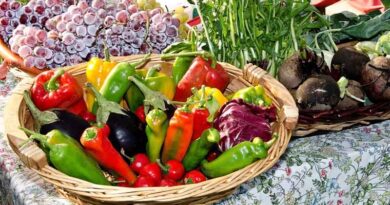
No More Copper in Your Wine? France Says It’s Time
03 October 2025, France: If you love French wine, here’s some news from the vineyards. Organic winemakers in France are worried after the country’s food safety agency, ANSES (French Agency for Food, Environmental and Occupational Health & Safety), decided to ban 20 copper-based sprays that have been used for decades to fight downy mildew — a disease that can destroy grapevines.
What’s being banned?
Well-known products like Kocide 2000 and Kocide Flow are now off the market. Only two sprays – Champ Flo Ampli and Héliocuivre – are still allowed, but even these can only be used under much tighter rules.
The main reason given by ANSES is that vineyard workers could face health risks from using these products. The agency also said that manufacturers didn’t provide enough safety data to prove otherwise.
New rules for copper use
From now on, growers can’t use more than 4 kilograms of copper per hectare per year. Sprays have to be spaced out by at least a week, they can’t be used near homes or rivers, and they’re banned during the flowering season when vines are most delicate.
Why are winegrowers upset?
Copper is pretty much the backbone of organic winegrowing. It’s one of the very few ways to control mildew without synthetic chemicals. Many producers had also gone back to older, cheaper powder-based copper products in recent years because costs are rising.
Now, with those cheaper options disappearing by 2026, organic growers are worried. Some even fear they might be forced to abandon organic certification altogether if no alternatives are found.
Mixed opinions
In Germany, the big organic growers’ group Ecovin (founded in 1985) says it doesn’t understand France’s decision and argues that safer alternatives should be approved instead. But in France, the mood is tense. Local experts say the restrictions could have “serious consequences” for organic vineyards.
What’s next?
On average, French organic growers used about 3.7 kg of copper per hectare in 2024, with even higher use in Champagne, Burgundy, and Bordeaux. For now, 17 copper-based products are still on the list, but their approval expires in 2026. If ANSES applies the same rules then, those could disappear too — leaving organic winemakers with very few tools to protect their vines.
For wine drinkers, this might not mean empty shelves tomorrow, but it does show how fragile organic winegrowing can be when one of its oldest tools is taken away.
Also Read: UPL Raises Mancozeb Prices in China Again Amid Supply and Cost Pressures
📢 If You’re in Agriculture, Make Sure the Right People Hear Your Story.
From product launches to strategic announcements, Global Agriculture offers unmatched visibility across international agri-business markets. Connect with us at pr@global-agriculture.com to explore editorial and advertising opportunities that reach the right audience, worldwide.






